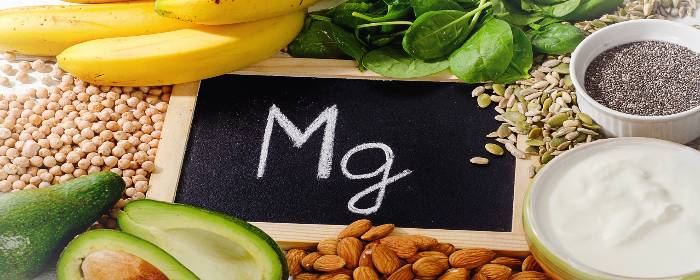
by admin | May 5, 2021 | Heart Failure, Health Awareness
According to the CDC, nearly one in three U.S. adults is living with hypertension, but just about half of them are controlling it effectively. Also known as high blood pressure, hypertension can be dangerous. It increases the force against the artery walls, and over time can lead to damage of the brain, heart, and kidneys.
Fortunately, there are many steps you can take to control your blood pressure. The first is understanding what’s considered normal versus high blood pressure.
For systolic blood pressure (the upper number), the categories are as follows:
- Normal: <120
- Elevated: 120-129
- Hypertension stage 1: 130-139
- Hypertension stage 2: 140 or higher
- Hypertensive crisis: higher than 180
For diastolic blood pressure (the lower number), the categories are:
- Normal: less than 80
- Elevated: less than 80 (and 120-129 systolic blood pressure)
- Hypertension stage 1: 80-89
- Hypertension stage 2: 90 or higher
- Hypertensive crisis: higher than 120
You can set up an appointment with your doctor’s office to have your blood pressure taken, but sometimes this service is available at pharmacies or even through home kits. Once you know where you stand, you can begin addressing your blood pressure through the following tips:
Reduce Sodium Intake
Salt raises blood pressure in many people, and it can hide in sources you wouldn’t suspect. Frozen foods, canned food, and even some beverages can be high in sodium. Ideally, you should be taking in less than 2,300 milligrams of salt each day, or 1,500 milligrams or less if you’re over the age of 50.
Incorporate Fruits & Vegetables into Your Diet
Fruits and vegetables are inherently nutritious due to their lack of sodium, cholesterol, trans fat, and saturated fat—all of which can contribute to high blood pressure. As an added bonus, they’re typically low in calories, which can help you maintain a healthy weight, and they’re also loaded with key vitamins and minerals.
Get Moving
Exercise can help you achieve and maintain a healthy weight, which contributes to healthy blood pressure. Adults should get at least a half-hour of moderate-intensity exercise each day, such as brisk walking. Children and teens should get an hour. While the risks of high blood pressure can be alarming, there are plenty of ways to get yours under control. Knowing your numbers and having ongoing conversations with your doctor can help you manage your blood pressure proactively.

by admin | Jul 10, 2019 | Health Awareness
When it comes to the minerals your body needs to perform well, calcium and potassium tend to get most of the attention. Yet, magnesium, a mineral responsible for more than 300 reactions throughout your body, is a key player in optimal nutrition and overall health. It helps to metabolize food, maintain strong bones, and control inflammation, but its most important job of all is regulating heart rhythm.
Magnesium & Heartbeat
Magnesium contributes to the transportation of electrolytes into a cell. Electrolytes, including potassium and calcium, are critical for the nerve signals and muscle contractions needed to maintain a stable heartbeat. According to the 2012 Framingham Heart Study, low magnesium correlates with atrial fibrillation, a heart malfunction in which the organ’s electrical system creates quivers in the upper chambers, ultimately creating an irregular heartbeat.
While further studies must be completed to determine whether increased magnesium intake can boost heart health, there do appear to be clear benefits of getting enough magnesium. One meta-analysis of more than 20 studies indicate magnesium supplements can lower blood pressure. This could ultimately contribute to improved heart health, since high blood pressure can lead to the thickening of the arteries, increasing the risk for heart attack, stroke, and heart failure. Separately, a link between elevated heart attack risk and low magnesium levels has also been established.
How Much Magnesium Does Your Body Need?
Healthy individuals have roughly 25 grams of magnesium stored in their bodies, which is concentrated mostly in the bones. Less than 1% is found in the blood, which is why diagnosing a magnesium deficiency presents challenges. With that said, certain populations are known to face a greater risk for a deficiency, including people with conditions that deplete the mineral. Individuals with gastrointestinal diseases, type 2 diabetes, and alcoholism may have low magnesium. Additionally, people taking diuretics and proton pump inhibitors share a greater risk for a magnesium deficiency.
Individuals with a diagnosed magnesium deficiency may be recommended for supplements, as increasing intake of the mineral could help avoid serious health issues, including irregular heartbeat, seizures, and muscle spasms. The recommended dietary allowance (RDA), or daily level of intake sufficient for nearly all healthy individuals, is 420 mg for male adults aged 31 and up, and 320 mg for women of the same age. Younger people may need less, while women who are pregnant may need more. Speak to your physician to determine what may be best for you.
Dietary Sources of Magnesium
While some foods, such as cereals, are enriched with added magnesium, there are also many food sources which are naturally high in the mineral. Almonds boast the greatest amount of magnesium, with 80 mg per serving. Spinach, cashews, soymilk, black beans, avocado, potatoes, and yogurt are also good sources of the nutrient.
Of course, if you’re experiencing symptoms such as irregular heartbeat or muscle spasms, it’s important to get to the bottom of it by consulting your physician before beginning any supplement regimen. For the right individuals, the benefits of magnesium can extend beyond heart health, leading to reduced inflammation and insulin resistance as well as improved exercise performance.



 St. Petersburg, Florida
St. Petersburg, Florida
